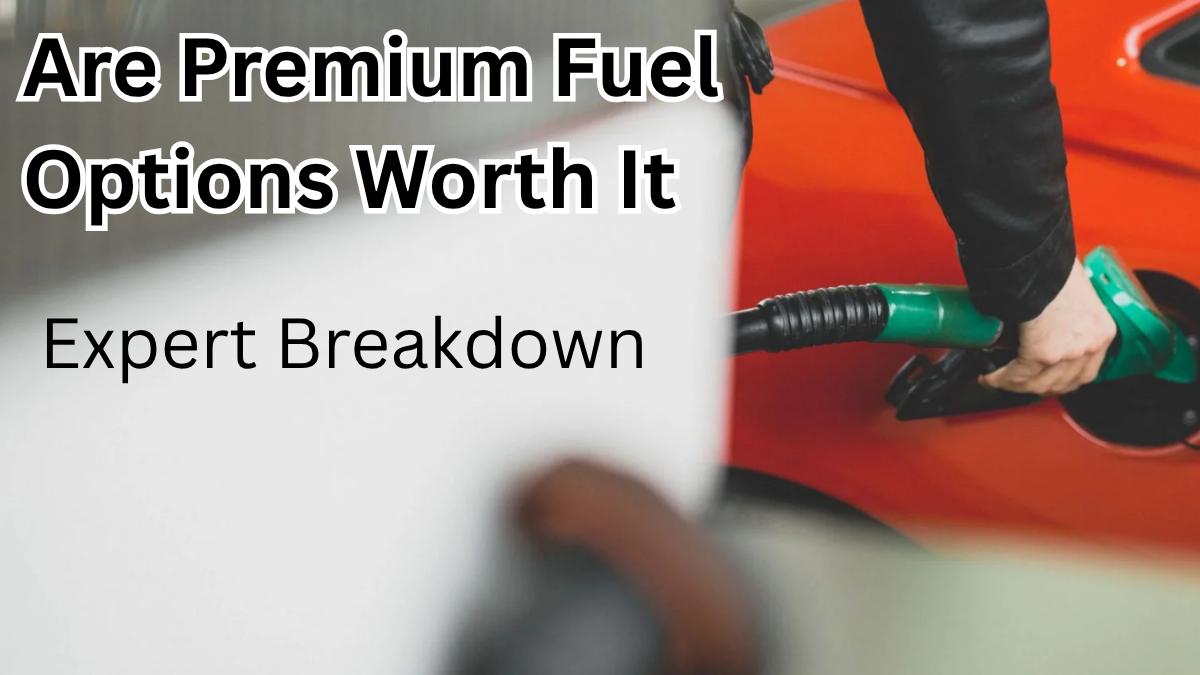If you’ve ever stood at the gas pump wondering whether you should shell out a few extra bucks for premium fuel, you’re not alone. It’s a question many drivers ask — and with good reason. We all want the best for our vehicles, but is premium really “better,” or just more expensive?
Let’s break it down with real-world insights to help you make a smarter decision at the pump.

What Exactly Is Premium Fuel?
Premium fuel is gasoline with a higher octane rating than regular fuel. While regular gas usually has an octane rating of 87, premium fuel typically starts at 91 or higher.
Octane Rating Explained
-
Octane rating measures a fuel’s ability to resist “knocking” during combustion.
-
Higher octane = more resistance to engine knock, but not necessarily more power or better mileage.
Premium Fuel vs Regular: Key Differences
Here’s a quick comparison to help you understand how premium fuel vs regular stacks up:
| Feature | Regular Fuel | Premium Fuel |
|---|---|---|
| Octane Rating | 87 | 91–94 |
| Price | Lower | Higher (₹10–₹20/L more) |
| Suitable For | Most everyday vehicles | High-performance/luxury cars |
| Fuel Economy | Standard | Marginally better in some engines |
| Engine Protection | Adequate for basic engines | Better for high-compression engines |
Should You Use Premium Fuel?
That depends on your car engine type. Here’s how to decide:
Use Premium If
-
Your owner’s manual recommends or requires it.
-
You drive a turbocharged, high-performance, or luxury car.
-
Your engine is prone to knocking and you want smoother performance.
You Can Skip Premium If
-
Your car is designed to run on regular fuel.
-
You’re driving a daily commuter or family sedan with no performance upgrades.
-
You want to avoid unnecessary fuel expenses.
In many cases, filling a regular car with premium fuel won’t harm it — but it also won’t give you any extra benefits in terms of fuel economy or power.
Fuel Economy: Does Premium Make a Difference?
Here’s the truth: premium fuel doesn’t automatically boost your fuel economy. Unless your car’s engine is tuned to take advantage of the higher octane, you’re unlikely to see meaningful gains.
Some high-performance engines may run slightly more efficiently with premium fuel — but for most drivers, the difference is too small to justify the extra cost.
Real-World Tip: Check Your Manual First
Before switching fuels, pop open your car manual. Manufacturers clearly mention the required octane rating and whether premium is needed. Following those guidelines ensures you’re not overspending unnecessarily.
Final Verdict: Is Premium Worth the Price?
In the great debate of premium fuel vs regular, it all boils down to your car engine type and driving habits.
Summary Points
-
Use premium if your car requires it.
-
Stick to regular if your car runs fine on it — no need to pay more.
-
Watch for knocking or reduced performance — those are signs premium may help.
-
Always consider your vehicle’s fuel economy and overall maintenance needs.
FAQs
1. Will using premium fuel in a regular car improve performance?
Not really. If your car is built for regular fuel, using premium won’t offer any noticeable performance boost or better fuel economy.
2. Can using regular fuel in a premium-recommended car damage the engine?
If your car requires premium fuel, using regular can cause engine knock and long-term damage. If it only recommends premium, regular fuel may just reduce performance slightly.
3. Is premium fuel cleaner or better for the engine?
Premium fuel isn’t necessarily cleaner. All fuels sold must meet government standards. What matters more is the engine type and how it’s designed to use fuel.
4. Is it okay to switch back and forth between premium and regular fuel?
Occasional switching is usually safe for most cars that don’t require premium. But if your car needs high octane rating, don’t risk damage by downgrading regularly.
Click here to learn more